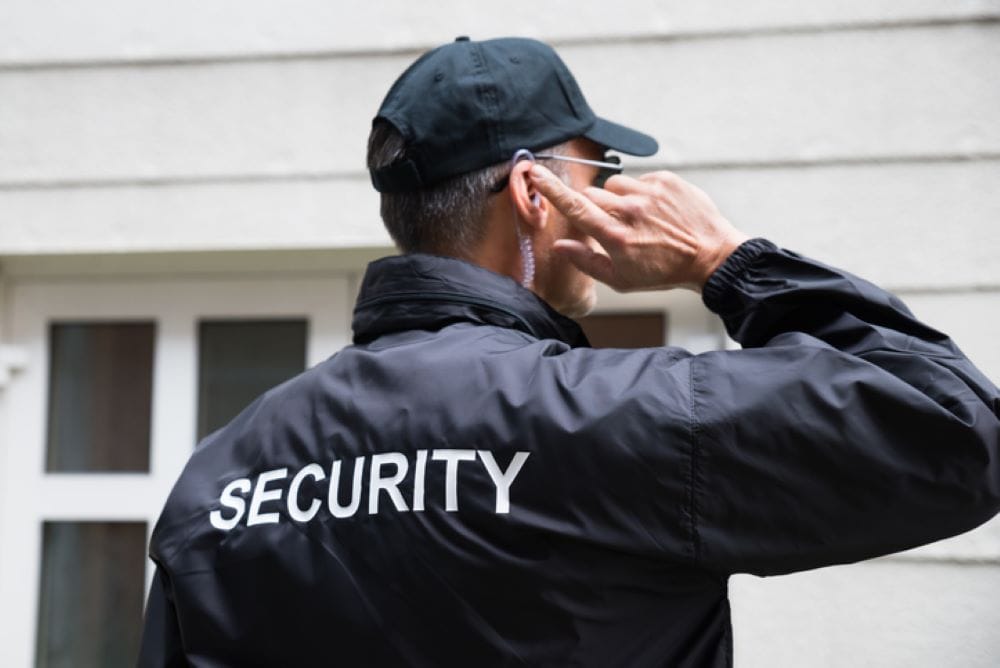
If you’ve been the victim of an assault by a security guard in Las Vegas Nevada, seeking compensation might be at the forefront of your mind. Understanding your legal rights and options is crucial in navigating this complex and often overwhelming situation. From negligent security claims to excessive force and premises liability, there are various legal avenues you can explore to obtain the compensation you deserve.
Understanding Negligent Security and Excessive Force
Before delving into the specifics of compensation, it’s essential to grasp the legal concepts of negligent security and excessive force. Negligent security refers to a situation where property owners or security personnel fail to take reasonable measures to prevent foreseeable harm to individuals on their premises. On the other hand, excessive force occurs when other security personnel use more force than reasonably necessary to control a situation.
What Constitutes Negligent Security?
Negligent security occurs when a property owner or manager fails to take reasonable steps to provide adequate security measures to protect visitors from foreseeable harm. Here are some key elements that may constitute negligent security:
Inadequate Training: Property owners must ensure security personnel are properly trained in conflict resolution and use of force.
Lack of Surveillance: Failure to install or maintain surveillance systems can increase the risk of harm to patrons.
Insufficient Staffing: Not having enough security personnel can lead to delays in addressing security threats.
Neglecting Known Risks: Property owners should promptly address known risks or hazards on their premises.
Failure to Implement Security Measures: Basic security measures like access control and lighting should be in place to deter criminal activity.
Ignoring Complaints or Reports: Dismissing reports of security concerns contributes to an unsafe environment.
When Does Security Guard Conduct Cross the Line into Excessive Force?
While security guards are entrusted with maintaining safety, they must do so within the boundaries of the law. Security guard conduct crosses the line into excessive force when their actions go beyond what is reasonably necessary to maintain safety and control in a given situation. Determining when this threshold is crossed involves assessing several factors:
Severity of Threat: Force should match the level of threat presented. Excessive reasonable force occurs when the response is disproportionate to the danger.
Immediacy of Threat: Force is justified to counter immediate threats. However, if the danger has passed or isn’t imminent, further force may be deemed excessive.
Intent: Excessive force may be inferred if actions are driven by malice or aggression rather than maintaining safety.
Alternatives: Guards should attempt non-violent solutions first. If reasonable options weren’t considered, force may be seen as excessive.
Proportionality: Force should be proportional to the threat. Using more force than necessary suggests excessiveness.
Consequences: If force leads to unnecessary injury or escalation, it’s likely excessive.
What to Do if You’ve Been Injured by a Security Guard
If you’ve been injured by a security guard, it’s crucial to take certain steps to protect your well-being and preserve your legal rights. Here’s what you should do if you find yourself in this situation:
Seek Medical Attention: Get immediate medical help for your injuries and keep records of all related expenses.
Document the Incident: Take photos, gather witness information, and report the incident to the authorities.
Preserve Evidence: Keep any damaged belongings and refrain from altering any evidence related to the incident.
Consult a Personal Injury Lawyer: Seek legal advice from an experienced attorney who specializes in personal injury cases.
Know Your Rights: Understand your legal rights and options for seeking compensation for your injuries.
Keep Records: Maintain detailed records of all expenses and losses incurred due to the incident.
Follow Legal Procedures: Work closely with your negligent security lawyer to navigate the legal process effectively.
Injuries Caused by Security Guard Assaults
Assault by a security guard can result in a wide range of injuries, including:
Bruises and contusions
Broken bones
Head and neck injuries
Psychological trauma, such as anxiety and post-traumatic stress disorder (PTSD)
In extreme cases, wrongful death
These injuries can have long-lasting physical, emotional, and financial consequences for the victim and their loved ones. Seeking compensation is essential to cover medical expenses, lost wages, and other damages resulting from the assault.
Determining Liability in Security Guard Assault Cases
Determining liability in security guard assault cases involves identifying the parties responsible for the assault and establishing their legal culpability. Here’s how liability is assessed in these situations:
Security Guard: The individual who committed the assault is typically the primary party responsible for the incident.
Employer of the Security Guard: The employer may also be liable under vicarious liability for the actions of their employee.
Property Owner or Manager: If the assault occurred on their premises, they may be held accountable for negligent security practices.
Third Parties: Other individuals or entities, such as patrons or inadequate security training providers, may share liability depending on the circumstances.
Can You Sue a Security Guard for Assault?
Yes, you can sue a security guard for assault if their actions were unreasonable or excessive. In addition to the security guard, you may also be able to pursue legal action against their employer or the property owner under premises liability laws.
Suing for Excessive Force or Assault
Suing for excessive force or assault involves several key steps to ensure a successful legal claim. Here’s a brief overview of the process:
Consult with a Personal Injury Lawyer: Seek guidance from a specialized lawyer to assess your case’s viability and legal options.
Gather Evidence: Collect witness statements, medical records, and any documentation supporting your claim of excessive force or assault by the security guard.
File a Complaint: Initiate legal proceedings by submitting a formal complaint outlining the incident and the damages suffered.
Serve the Defendant: Ensure proper notification of the lawsuit to the security guard, obligating them to respond within a specified timeframe.
Discovery Process: Exchange relevant information and evidence with the defendant through depositions and document requests.
Negotiation and Settlement: Attempt to reach a resolution through negotiations or mediation outside of court.
Trial: Present your case to a judge or jury, arguing your claims and providing evidence to support your allegations.
How to Prove an Aggravated Assault Claim Against a Security Guard
Proving an aggravated assault claim against a security guard requires presenting evidence to establish that the guard’s actions meet the legal definition of aggravated assault. Here’s how to do it:
Document the Incident: Collect eyewitness accounts, photos, and medical records to provide evidence of the assault’s occurrence and its severity.
Establish Intent: Show thorough witness statements or victim testimony that the security guard acted deliberately or recklessly, understanding the potential harm caused.
Show Serious Bodily Harm: Use medical records to demonstrate the extent of the victim’s injuries, supporting the claim of aggravated assault.
Demonstrate Use of Deadly Weapon: Present physical evidence or witness testimony indicating the use of a deadly weapon during the assault to escalate the offense.
Prove Lack of Justification: Illustrate that the security guard’s actions were unjustified, considering factors like the severity of the threat and available alternatives to violence.
Consult with Experts: Seek expert testimony to provide professional analysis and validation of the evidence supporting the aggravated assault claim.
Seeking Settlement for Assault Committed by a Security Guard or Bouncer
In many cases, assault claims involving security guards or bouncers are resolved through settlement negotiations rather than going to trial. A settlement allows both parties to avoid the time, expense, and uncertainty of litigation while still providing compensation to the victim. An experienced personal injury lawyer can help you navigate this process and ensure that you receive fair compensation for your injuries and damages.
Types of Damages You Can Recover
In a security guard assault compensation case, you may be entitled to various types of damages, including:
Medical expenses: Coverage for current and future medical bills related to your injuries.
Lost wages: Compensation for income lost due to time taken off work for recovery.
Pain and suffering: Damages for physical and emotional distress caused by the assault.
Punitive damages: Additional compensation intended to punish the defendant for egregious behavior.
Calculating Compensation in Nevada Negligent Security Lawsuits
Calculating compensation in a negligent security lawsuit involves assessing the full extent of your damages, both economic and non-economic. This may require consulting with medical experts, economists, and other professionals to determine the long-term impact of your injuries on your life and livelihood.
What the Law Allows Security Staff to Do
While security staff are authorized to take reasonable steps to maintain safety and security, they are not above the Nevada law. Using excessive force or engaging in violent conduct can result in legal consequences, including civil liability and criminal charges.
The Role of an Attorney in Security Guard Assault Compensation Cases
When faced with the aftermath of a security guard assault, seeking legal guidance is crucial for securing compensation and justice. A negligent security attorney specializing in personal injury law can provide invaluable assistance throughout your case. Here’s how:
Legal Guidance and Explanation: An attorney provides clear explanations of your legal rights and options, ensuring you understand the complexities of your case and can make informed decisions.
Investigation and Evidence Gathering: Attorneys conduct thorough investigations, gathering crucial evidence such as witness statements and surveillance footage to build a strong foundation for your premises liability claim.
Determining Liability: Attorneys assess the responsibilities of all involved parties, including the security guard, employer, and property owner, to determine who should be held accountable for your damages.
Negotiation with Insurance Companies: Attorneys negotiate with insurance adjusters to secure fair compensation for your injuries, including coverage for medical bills, lost wages, and pain and suffering.
Filing Lawsuits and Court Representation: Attorneys handle all legal filings and represent you in court, presenting your case before a judge and jury and advocating vigorously for your rights and interests.
Expert Testimony and Consultation: Attorneys consult with medical and security experts to strengthen your case, providing valuable insight into the extent of your injuries and the standard of care expected in security situations.
Protection of Legal Rights: Attorneys ensure that your legal rights are protected throughout the proceedings, advising you on interactions with law enforcement, insurance companies, and opposing counsel.
Pursuit of Maximum Compensation: Attorneys assess the full extent of your damages and fight aggressively to secure maximum compensation for your losses, including past and future medical expenses, lost income, and emotional distress.

Take Control of Your Legal Journey with BLG
In conclusion, if you’ve been assaulted by a security guard in Nevada, you have legal rights and options available to seek compensation for your injuries and damages. From negligent security claims to premises liability lawsuits, holding responsible parties accountable can help you recover the compensation you deserve and prevent similar incidents from occurring in the future. If you’re unsure about your legal rights or how to proceed with your case, don’t hesitate to seek guidance from a knowledgeable and experienced personal injury lawyer who can advocate for your best interests.
Are you ready to take the first step towards justice and compensation for your security guard assault? Don’t navigate this complex legal landscape alone. BLG is here to support and guide you every step of the way. Our experienced attorneys understand the intricacies of negligent security cases and are dedicated to fighting for your rights
Contact us today for a free consultation.




